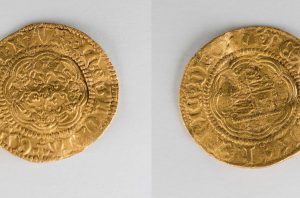By: Benjamin He
In 2023, in an ancient city-state in Turkey named Notion, archaeologists unearthed a small pot of gold amidst the ruin of an ancient courthouse. Initially confused at the accidental discovery, then most likely excited, the archaeologists brought the pot back to the lab, where it was further researched. There it has become the subject of speculation and investigation.
“The coins were buried in a corner of the older building,” said Christopher Ratté, the archaeologist at the University of Michigan whose team discovered the gold. “The coins were buried in a corner of the older building,”
Dr. Ratté later proposed several scenarios for the pot’s existence, none of which have anything to do with leprechauns and/or rainbows. One of these explanations was that, about 2,400 years ago, a mercenary soldier had buried the small jug (also called an olpe) filled with darics, or gold coins. Something then might’ve happened to the soldier, causing the stash to never be retrieved.
The archaeological site at Notion spans an entire 80 acres. It is located on top of a promontory in Western Anatolia, a borderland dividing Asia from Europe. Notion was one of the first Greek-speaking communities that emerged during the early first millennium B.C.
A singular daric was equal to about a month’s pay for these soldiers. They were the chief payment method to pay soldiers of fortune. Andrew Meadows, an archaeologist at the University of Oxford, stated that this find was made more significant since,to the best of his knowledge, there were no other hoards like this currently in Asia Minor. This pot of gold may not only be the first of its kind, it may be the only one of its kind in the entirety of Asia Minor.
“The archaeological context for the hoard will help us fine-tune the chronology of Achaemenid gold coinage.” says Dr. Meadows.











